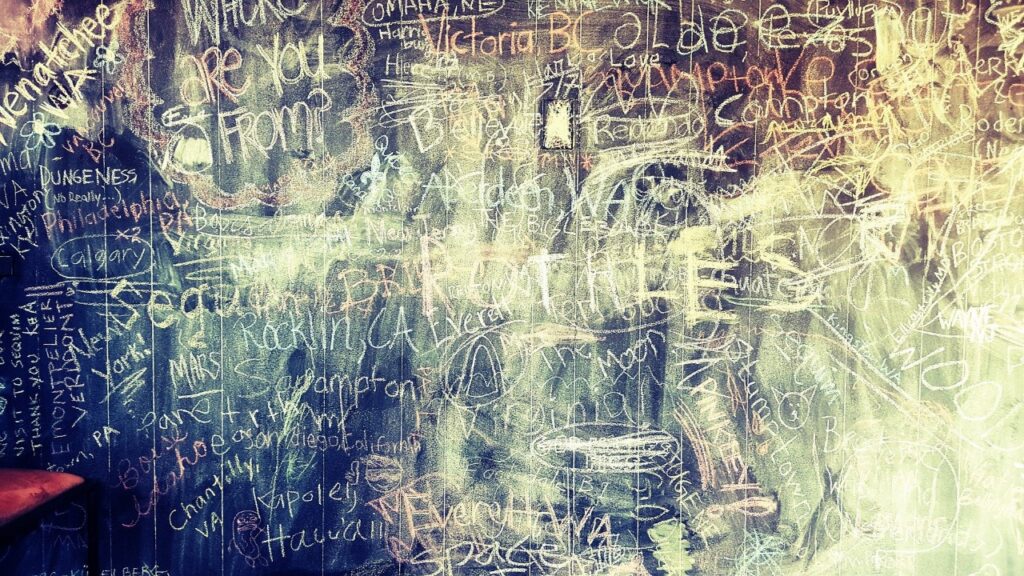
The curators of News on the Web did us a painful favor when they collected the new words of the past decade.
In the sociopolitical realm, there is of course “wokeness,” stripped of its many inflections. We have acquired “birthers” (questioning Barack Obama’s citizenship) and “truthers,” a sad choice of labels for people who believe the U.S. government was behind the 9/11 terrorist attack. There is some hope for transparency in “pull-aside,” which acknowledges the way powerful people do their real business at a public event. But then I come to “churnalism,” the all too frequent “journalism that churns out articles based on wire stories and press releases, rather than original reporting.” At least the fraught politics of gender gave us “manspreading,” one of those marvelously evocative words that help us see their meaning in action.
For a glimpse of the real U.S. economy, this glossary beat a brokerage report. A “decacorn” is a tech company that is less than ten years old and worth more than ten billion dollars. “Red-chip” stock sells shares in Chinese companies. The “gig economy” is here, as is “collaborative consumption,” going online to collaborate on owning, renting, sharing, and trading goods and services—perhaps because that is the only way people in a gig economy can afford them). They are part of the “precariat,” working with little or no job security and instead participating in the “Uberization” that offers their services on demand. Is it any wonder the new words include “staycation” and “glamping”? Or that so many of us have “social jet lag,” defined as “tiredness and disorientation caused by forcing one’s body to sleep at unnatural times due to work commitments”?
How do we distract ourselves from all this insecurity and exhaustion? “Parkour” is one option on offer: “a sport in which participants run, climb, and leap over urban structures.” We have to; there are too many of them. After years of fitness crazes, we are at least being honest in naming the “sufferfest,” “a period of extreme suffering or discomfort brought on by intense physical exertion.” Collapsed on the sofa, we look for what is “bingeable,” be it food or media, and tiptoe around any “trigger warning.” We are soft, my farm-born mother-in-law would have said. We hide in our “filter bubble,” wracked by “FOMO.”
The new words are less than sanguine about family life. We have the “threenager” is a toddler “who displays the moodiness and attitude of a teenager,” and the “momager,” a bossy stage mother sort, managing her child’s career (presumably with no time to enjoy the new cottage industry of “mommy porn”). Meanwhile, though studies show us having less sex, we seem to be tacking “sexual” on to more words. Consider the sapiosexual (I love this one) who is “sexually attracted to intelligent people.” The “demisexual” only feels physical attraction “in the context of an emotional or romantic relationship,” which sounds quite healthy and sensible.
Sensible takes a nose-dive when you reach the tech words: the new scams, “catfishing” and “swatting” and “ransomware”; the “nomophobia” that leaves us terrified of being without a cell phone or a signal; the “range anxiety” that besets the drivers of electric cars. The decade brought us the “selfie stick” and left us in need of “digital detox,” understandable given the frequency of any “digital + noun” combination. There are “camgirls” and “droneports,” airports or hubs designed for drones; there are “data lakes” where massive amounts of data wait, pure and unprocessed. Just about everything we buy these days is prefixed “smart”—except perhaps us.
All the new environmental words are heartening, corny though their coinages might be. “Freegans” and “locavores” are doing us all a service, as is “upcycling.” Every neighborhood should receive a “walkscore.” And hallelujah for the “feebate” that charges people for vehicles that guzzle fuel and pays a rebate for the fuel-efficient. But we still have the pervasive “eco-anxiety,” which needs no explanation.
The “airpocalypse,” pollution maxed out by combining smog, dust, and weather, is just one of many -pocalypses on the list—another clue to our mental state. We see apocalypses everywhere; also armageddons, because we now add “geddon” to any crisis that calls for hysteria. There are quite a few, because we have made an “omnishambles” of the world, “a mess in every possible way.”
Read more by Jeannette Cooperman here.
